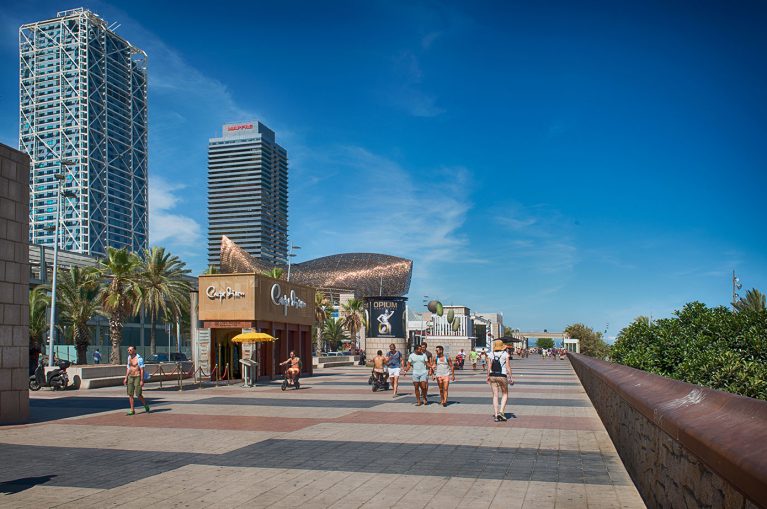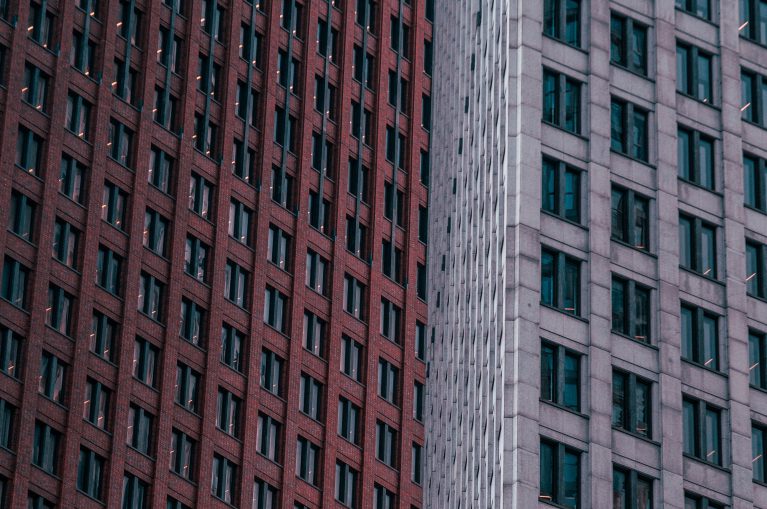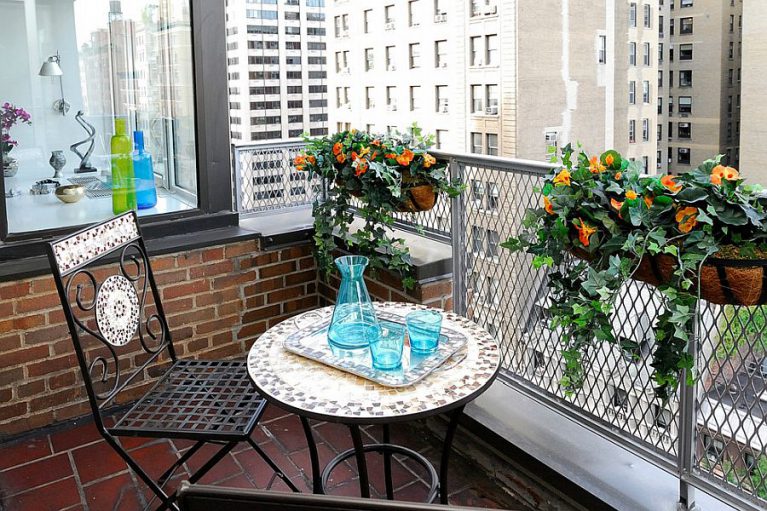GOING OUTSIDE
by Enric Canet
In an article called “The day Barcelona rejected balconies” published in the Spanish newspaper “El País”, the author reflected on why the city has so few balconies. There are different reasons, such as regulations and economic motives or sociological motives.
However, the point that that strikes me the most is the one related to the aggressiveness of the outdoors space, the traffic, the noise, the ugliness, and the lack of public spaces, especially in the 60s and 70s, when not only they were not built, but also a protective wall was created. It was an impermeable border with small wall openings, where light could enter, but not the urban landscape.
The declaration of Barcelona as the host of the 1992 Olympic Games became an incredible opportunity to transform the city, as it had already happened with the Universal Expo in 1929.
The industrial area of the Icaria neighborhood was specially affected by the reformation. The construction of the “Olympic Vila” was a chance to regenerate the area, to build facilities, big public areas and to open the city to the sea, after decades living away from it.

The paradox was that, once the almost 2000 homes were built, most of them didn’t have balconies.
When the project managers were asked about this curious circumstance, their answer was that, with the creation of a kind urban environment, wide streets and avenues full of vegetation, public squares and a fluid connection with the beach, the aim was for the people to get out of their houses, to enjoy and socialize in a privileged urban environment.
In other words, two opposite arguments used to design the same solution. This could be a local anecdote, but it repeats itself in every major city in the world. Is the lack of outside spaces in the buildings: hundreds of constructions where one has the feeling that their aim is to push life apart, instead of living it.
And the main reason for this is that houses are understood as an economic asset rather than a mean to achieve wellbeing.

A recent study by a famous furniture distribution company conducted during the pandemic states that 38% of the people would like to have a garden or an exterior space in their homes.
It also says that 53% would move out to a new home even if it would mean being farther from work if it meant having more outdoors space and more contact with nature. The study also point to the impact that lockdowns have had in our physical and mental health and it concludes that homes are not designed for our emotional wellbeing.
Outside spaces are essential in this sense. In fact, already in the 30s, they realized about the importance of hygiene, ventilation, and sunlight to improve our health.
Today, the pandemic has revalued them as indispensable elements, not only for our health, but also for our wellbeing.
We now understand that those middle spaces, hybrids that connect us with the outdoors, with nature, with the passage of time, with seasons and, ultimately, with life, are a decisive asset for the emotional health of all people.

